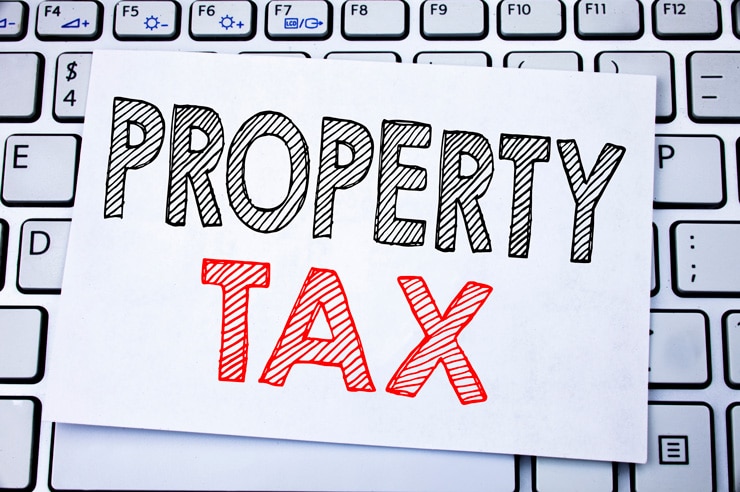Recent Tax Changes for UK Property Investors – Spring 2021
24/07/2021 - 7 minutes readA number of tax changes for UK property investors have added to compliance requirements for property owners and increased tax bills.
In the Spring 2021 Budget, the Chancellor announced a wide range of tax changes for UK property investors with a strong emphasis on encouraging capital spending as a route to achieving recovery in the economy.
Although changes to the corporation tax rate were announced, there was no increase in the Capital Gains Tax (CGT) rate, however, this may be revisited in the future.

Significant tax changes have been introduced in relation to the UK property market over recent years. These changes are likely to have impacted the majority of UK property owners, whether this be individuals or corporates, UK residents or non-residents and whether they hold the properties for investment or trading purposes.
Below is an overview of some of the more recent changes that have been announced in relation to the UK property market.
Stamp Duty Land Tax (SDLT)
Stamp Duty Land Tax (SDLT) applies to acquisitions of property in England and Northern Ireland with the rate varying according to the value of the property and whether it is residential or non-residential.
On 8 July 2020, the Chancellor announced an immediate SDLT holiday until April 2021 on the first £500,000 paid for a residential property in England or Northern Ireland. In the latest Budget, the Chancellor extended the SDLT holiday until 30 June 2021 which has now just expired.
In addition, the nil rate band will not immediately revert to the previous level of £125,000 from 1 July 2021; instead, the nil rate band will be maintained at £250,000 until 30 September 2021, after which it will revert to £125,000.
The existing 3% additional SDLT for buyers of second homes, corporate buyers and other property investors will also remain.
Furthermore, an additional 2% surcharge for non-UK residents has been applied to residential property acquisitions since 1 April 2021. It affects both non-resident individuals and non-natural persons (e.g. companies, trusts, partnerships), in addition to the existing SDLT rates of up to 15%.
In other words, the top rate for non-residents could be 17% (Scotland and Wales have their own regimes). Details can be found here SDLT changes.
New rules for residential property disposals
From 6 April 2020, taxable capital gains made by UK-resident individuals, trustees or personal representatives of a deceased person on the disposal of UK residential property must be reported to HMRC within 30 days of the completion date.
For these purposes, the disposal will include gifts in addition to sales of such property. Payment of the estimated CGT arising on the disposal(s) must be made within the same 30-day deadline. Details can be found here CGT changes.
For disposals by UK residents, there are various exceptions to the new reporting and payment rules, for example in cases where no CGT arises on the disposal.
Non-resident immovable property gains
Prior to 6 April 2019, non-UK residents were not subject to CGT in disposals of UK immovable property except in relation to certain disposals of residential property or where a trade was being carried on through a permanent establishment in the UK.
However, the scope of the UK tax net dramatically widened from 6 April 2019: non-UK residents are now subject to UK tax on gains on all direct and certain indirect disposals of interests in UK immovable property, subject to certain exceptions.
The new rules apply to all disposals of UK real property by non-residents that have not previously been within the scope of UK tax e.g. UK commercial property.
Corporation tax changes
As part of the Budget, it was also announced that the rate of corporation tax will increase from April 2023 to 25% on profits over £250,000.
The rate for small profits under £50,000 will remain at 19%, and there will also be a relief for businesses with profits under £250,000. This rate change will impact UK resident companies and also non-UK resident company investors in UK property.
Business rates holiday
The Chancellor has extended the existing rates relief available to tenants. The reliefs are available for eligible retail, leisure and hospitality businesses until July 2021 and will continue to discount business rates bills in these sectors by up to two thirds until March 2022.
The extension of relief is tailored and primarily targeted at smaller and medium-sized businesses who have been forced to close during the coronavirus outbreak.
Incentives to encourage investment in freeport tax sites
Tax reliefs have also been announced to encourage investment in eight freeport tax sites in East Midlands Airport, Felixstowe and Harwich, Humber, Liverpool City Region, Plymouth & South Devon, Solent, Thames, and Teesside.
This measure will enable tax sites in Freeport locations to be designated and recognised in law as geographical areas where businesses can benefit from Freeport-specific tax reliefs, such as:
- – relief from SDLT on the purchase of land or property within freeport tax sites in England
- – business rates relief in freeport tax sites in England
How can MCL Accountants help?
Contact MCL Accountants on 01702 593 029 if you have any queries regarding recent tax changes for UK property investors or if you need any assistance with the preparation and submission of your company accounts or self-assessment tax returns to HMRC.
Tags: Capital Gains Tax
0 Comments